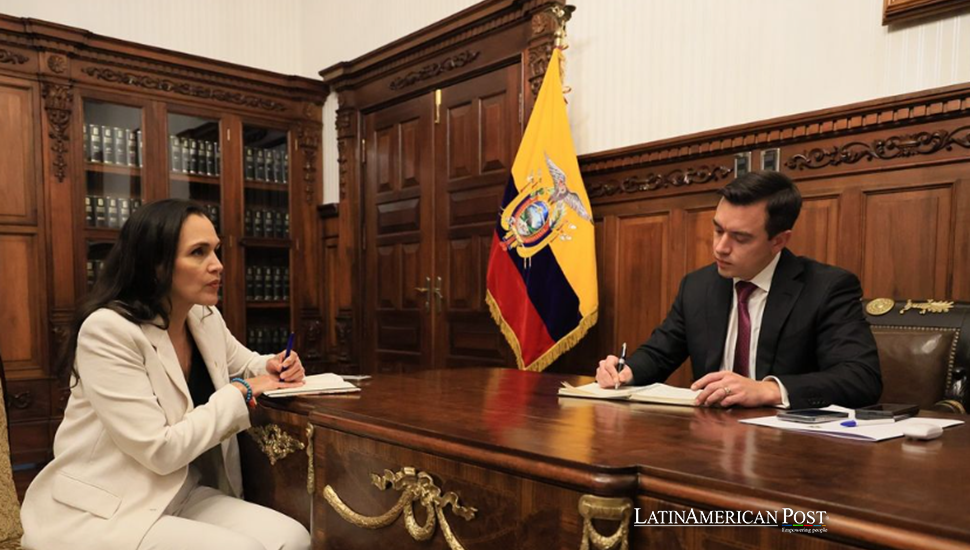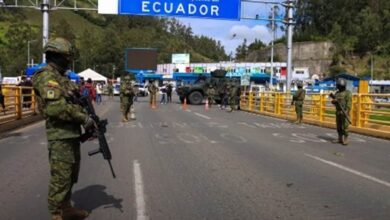Ecuador’s Noboa Should Focus on Governing, Not Reelection

One year into his term, Ecuadorian President Daniel Noboa faces mounting economic and security challenges. Instead of prioritizing reelection in 2025, he should concentrate on solving these pressing issues, ensuring stability before seeking a full mandate.
The State of Ecuador Under Noboa’s Leadership
Daniel Noboa, elected Ecuador’s youngest president at 35, entered office amid severe economic and social turmoil. His election followed the early departure of former president Guillermo Lasso, and Noboa inherited a nation grappling with significant financial, energy, and security crises. Ecuador’s fiscal deficit was approximately $4.8 billion, equating to 5% of its GDP. Noboa described the nation’s state as “destroyed,” with rampant energy shortages leading to extended blackouts, sometimes lasting up to ten hours daily. The economic toll is substantial, with each hour of blackout costing Ecuador an estimated $12 million.
While Noboa has made commendable efforts to stabilize Ecuador’s political environment by navigating agreements with the National Assembly, the situation remains precarious. Many of the country’s foundational problems persist, and Noboa’s focus on reelection may detract from addressing these urgent matters. With an energy crisis and security threats intensifying, Ecuador requires a leader prioritizing solutions over political ambition.
The Reelection Distraction
Despite Ecuador’s monumental challenges, Noboa has set his sights on reelection for a full term from 2025 to 2029. He is one of sixteen registered candidates for the upcoming elections, and early polls place him as the favorite. His main rival is Luisa González, a prominent figure from the Correa political faction. Noboa previously defeated González in 2023, and it seems he is now eager to extend his presidency beyond the current shortened term.
However, this focus on reelection is a risky distraction. Rather than dedicating energy to campaigning, Noboa should concentrate on the pressing issues plaguing Ecuador. The energy crisis alone is a glaring example of unresolved challenges. Although he has managed to eliminate gas subsidies and increase VAT from 12% to 15% without significant public outcry, the blackouts persist, exacerbating public frustration. With the economy hanging by a thread, Noboa’s priority should be fixing these systemic issues rather than positioning himself for another election.
Security Crisis: A National Emergency
Perhaps the most alarming problem Ecuador faces under Noboa’s leadership is the security crisis, particularly the rise in organized crime. On January 9, 2024, Ecuador experienced one of its most violent days in recent memory when a group of armed individuals stormed a television station during a live broadcast. This was followed by a wave of violent incidents across the country, including riots in several prisons. These events prompted Noboa to declare an internal armed conflict, militarize prisons, and enforce states of emergency to quell the violence.
Despite these measures, Ecuador continues to be plagued by crime linked to drug trafficking and illegal mining. In 2023, the country recorded the highest homicide rate in Latin America, with 47.2 murders per 100,000 inhabitants. While the government has made strides in combating drug trafficking, seizing over 223 tons of narcotics, the crisis is far from under control. Noboa revealed that authorities have uncovered 2,000 hectares of illegal coca plantations, a stark indicator of the drug trade’s entrenchment in Ecuador.
These security challenges demand full and undivided attention. Noboa’s efforts to combat crime and restore law and order are crucial, but the battle is far from over. Shifting his focus toward reelection would only compromise his administration’s ability to handle the spiraling violence. The Ecuadorian people need stability and security, not campaign promises.
International Relations and Unresolved Conflicts
In addition to domestic challenges, Noboa’s international dealings have also drawn attention. His administration faced significant diplomatic backlash following an incident in April when Ecuadorian police stormed the Mexican embassy in Quito to arrest Jorge Glas, the former vice president under Rafael Correa, who Mexico had granted diplomatic asylum. This bold move has led to a lingering legal dispute between Ecuador and Mexico at the International Court of Justice (ICJ) in The Hague.
Mexico accuses Ecuador of violating the inviolability of diplomatic premises, while Ecuador argues that Mexico interfered in its internal affairs by granting asylum to a convicted criminal. This unresolved dispute has strained relations between the two countries and is emblematic of Noboa’s challenges on the international stage.
Rather than focusing on reelection, Noboa should prioritize resolving such diplomatic issues. Ecuador’s standing in the international community depends on effective and lawful diplomatic strategies, not on pursuing personal political gain. Noboa can restore Ecuador’s credibility on the world stage by concentrating on governing and mending strained relations.
Internal Political Struggles and Governance Challenges
Further complicating Noboa’s situation is his internal political conflict with Vice President Verónica Abad. Ecuador’s constitution mandates that the vice president assumes presidential duties when the president takes leave for electoral campaigning. However, tensions between Noboa and Abad have escalated, with Abad claiming her right to assume presidential functions while Noboa campaigns. Noboa, meanwhile, has sought to sideline her, appointing her as Ecuador’s ambassador to Israel and accusing her of political gender violence.
This internal power struggle threatens to overshadow Ecuador’s real issues. If Noboa continues to engage in political infighting and focuses on his reelection campaign, it could tarnish his public image and weaken his authority. Moreover, such distractions could prevent him from effectively addressing the country’s energy crisis, crime wave, and economic struggles.
Analysts like Alberto Acosta-Burneo warn that Noboa’s mishandling of these political tensions could have severe consequences for his presidency and Ecuador’s future. The public is already growing frustrated with the government’s inability to resolve the blackouts, and any further political instability could undermine confidence in Noboa’s leadership.
Noboa Must Prioritize Governing
Daniel Noboa’s administration faces a critical juncture. With Ecuador enduring a severe energy crisis, unprecedented levels of violence, and diplomatic disputes on the international stage, the president should focus on governing, not seeking reelection. While Noboa’s ambition for a full term is understandable, it is imperative that he first demonstrates his ability to lead Ecuador through these tumultuous times.
Also Read: Stopping Latin America’s AI Talent Drain to Ensure Progress
By shifting his attention to addressing the nation’s urgent problems, Noboa can strengthen his legacy and position himself as a leader who puts Ecuador’s needs above personal political aspirations. The country desperately needs stability, security, and economic reform. Noboa’s responsibility is to govern effectively and ensure that Ecuador emerges more vital from this crisis rather than prematurely launch into a reelection campaign.





